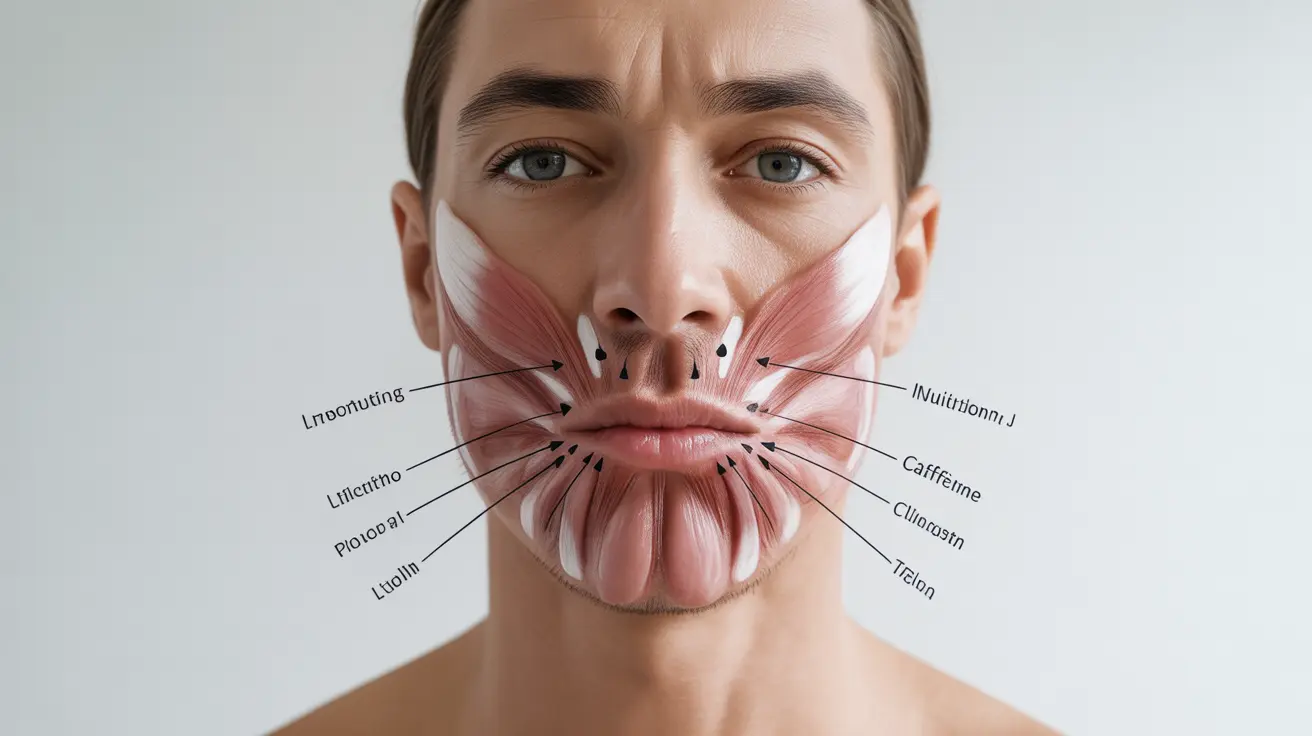Have you ever experienced an unexpected twitch or spasm in your lip? Lip twitching, while usually harmless, can be both annoying and concerning when it occurs. This involuntary muscle movement can affect either the upper or lower lip and may last from a few seconds to several days. Understanding the causes and knowing when to seek medical attention can help you manage this common condition effectively.
In this comprehensive guide, we'll explore the various causes of lip twitching, discuss potential treatments, and help you understand when these muscle spasms might indicate a more serious underlying condition.
Common Causes of Lip Twitching
Lip twitching often results from everyday factors that can be easily addressed. Here are the most frequent causes:
Stress and Anxiety
Mental and emotional stress can trigger muscle tension throughout your body, including your facial muscles. When you're under pressure, these muscles may respond with involuntary movements like twitching.
Caffeine and Stimulants
Excessive consumption of caffeinated beverages, energy drinks, or other stimulants can overstimulate your nervous system, potentially leading to muscle spasms and twitching in various parts of your body, including your lips.
Nutritional Deficiencies
Low levels of certain essential nutrients, particularly magnesium, potassium, and calcium, can contribute to muscle spasms and twitching. Maintaining a balanced diet is crucial for preventing these symptoms.
Fatigue and Lack of Sleep
Poor sleep quality or insufficient rest can affect your nervous system's function, potentially resulting in muscle twitches and spasms.
Treatment and Prevention Strategies
Lifestyle Modifications
Simple changes in your daily routine can often help reduce or eliminate lip twitching:
- Reduce caffeine intake
- Establish a regular sleep schedule
- Practice stress management techniques
- Stay hydrated
- Maintain a balanced diet
Nutritional Support
Ensuring adequate intake of essential nutrients can help prevent muscle spasms:
- Magnesium-rich foods (leafy greens, nuts, seeds)
- Potassium-rich foods (bananas, avocados, sweet potatoes)
- Calcium-rich foods (dairy products, fortified plant-based alternatives)
When to Seek Medical Attention
While most cases of lip twitching are benign, certain symptoms warrant professional evaluation:
- Persistent twitching lasting more than a week
- Twitching accompanied by other facial muscle weakness
- Difficulty speaking or eating
- Numbness or tingling in the face
- Twitching that spreads to other parts of the face or body
Frequently Asked Questions
What causes my lip to twitch, and is it something serious? Lip twitching is usually caused by stress, caffeine consumption, fatigue, or nutritional deficiencies. While rarely serious, persistent twitching or additional symptoms may indicate an underlying condition requiring medical attention.
Can drinking too much coffee or caffeine really cause lip twitching? Yes, excessive caffeine intake can overstimulate your nervous system and lead to muscle twitches, including in your lips. Reducing caffeine consumption often helps alleviate these symptoms.
When should I see a doctor about lip twitching, and what other symptoms should I watch for? Consult a healthcare provider if twitching persists beyond a week, is accompanied by facial weakness, numbness, or difficulty speaking or eating. These symptoms could indicate a more serious condition requiring medical evaluation.
How can I stop or reduce lip twitching at home, and are there foods or supplements that help? You can often reduce lip twitching by managing stress, getting adequate sleep, staying hydrated, and ensuring proper nutrition. Foods rich in magnesium, potassium, and calcium may help prevent muscle spasms.
Are there serious medical conditions linked to lip twitching, and how are they treated? While rare, lip twitching can be associated with conditions like hemifacial spasm, Bell's palsy, or neurological disorders. These conditions require proper medical diagnosis and treatment, which may include medications, physical therapy, or in some cases, surgical intervention.




